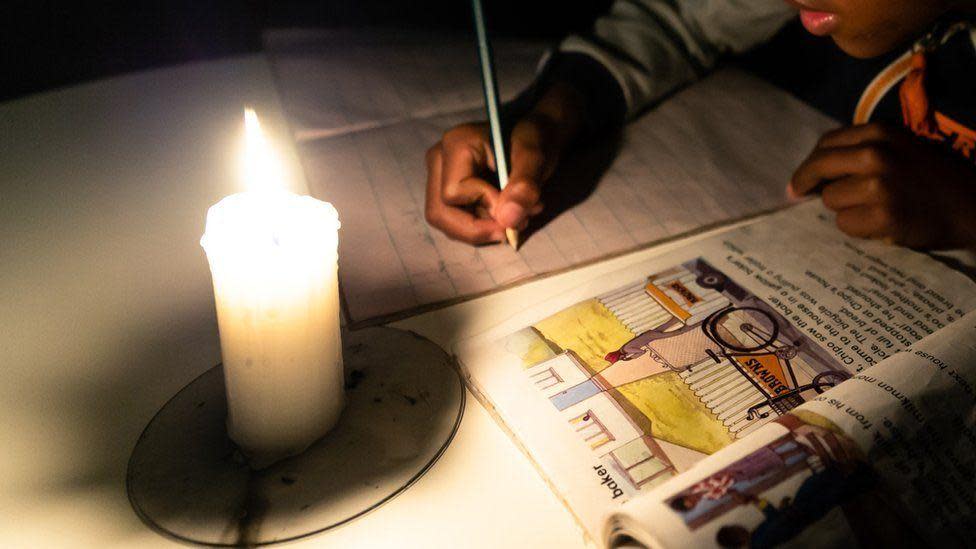Power restored to Sierra Leone as minister quits

Electricity supplies have been restored to Sierra Leone following weeks of power cuts, after it paid off part of the $48m (£38m) bill it owed to a Turkish company.
The $18m payment came as the country's energy minister resigned, saying he took full responsibility for the crisis.
Most electricity supplies to the capital, Freetown, come from a Turkish ship anchored off the country’s coast.
Last week, Karpowership said it had severely cut supplies to the city - from 60 megawatts to 6 megawatts - because of the unpaid bills, but the disruption has been going on for far longer.
Residents of the country's main cities have been going for days on end without any power and hospitals have also been affected.
The Reuters news agency quotes a doctor as saying that at least one infant has died because of a lack of power, while medics have been using mobile phones to provide light as they carry out procedures.
Before supplies were restored, Fatmata Gassim, a second-year engineering student in Freetown, told the BBC's What in the World podcast of her frustration at the lack of power.
"How do you iron your clothes, how do you make your food, how do you go to sleep? We pay our electricity bills so I don’t see why we should be forced to live like this,” she said.
Following the resignation of Kanja Sesay, the office of President Julius Maada Bio said the energy ministry would now fall under the direct supervision of the president.
Karpowership previously cut supplies to Sierra Leone in September over unpaid bills.
It is one of the world's biggest floating power plant operators, with several African states relying on it for electricity.
In October, it briefly cut power to Guinea-Bissau, saying it had no option "following a protracted period of non-payment".
The power ships work by converting gas into electricity, which is then fed into the national grid.
Although access to electricity has increased in sub-Saharan Africa in recent years, it still remains low, with more than 50% of the region's population having no grid connection, according to the United Nations Conference on Trade and Development (Unctad).
